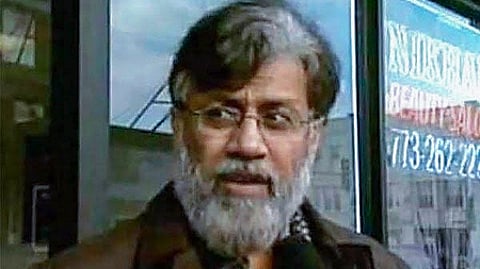

Tahawwur Hussain Rana, a Pakistani-origin businessman, physician, and immigration entrepreneur, has long been linked to one of the most horrific terrorist attacks in India’s history the 26/11 Mumbai attacks. Known for his connections with Lashkar-e-Taiba (LeT) and Pakistan's Inter-Services Intelligence (ISI), Rana’s role in facilitating the attacks has remained a point of contention between India and the United States for years.
Extradition Efforts and the Recent US Supreme Court Ruling
According to an Economic Times report on Friday, Rana’s extradition to India has been a long and contentious battle. Following his arrest in 2009 in Chicago on charges related to his support for Lashkar-e-Taiba, the US courts convicted him for aiding the group’s activities, specifically a plot to attack Denmark. However, Rana was acquitted of charges directly linked to the 26/11 attacks, despite overwhelming evidence of his involvement in supporting the attack’s execution.
India, which has long sought Rana’s extradition to face trial for his role in the attacks, found a significant breakthrough when the US Supreme Court, in a decision made on January 21, 2025, rejecting Rana’s review petition. This ruling paved the way for the Department of State to initiate the process of his extradition. The United States’ agreement to send Rana to India has been hailed as a victory for justice, as Indian authorities have maintained that his interrogation and trial are crucial to bringing full accountability for the tragic events of 26/11.
President Donald Trump confirmed this decision in a major announcement after bilateral talks with Indian Prime Minister Narendra Modi on Thursday. The US, in its statement, reaffirmed its long-standing support for India's efforts to ensure that the perpetrators of the Mumbai attacks are brought to justice. The extradition was seen as a critical step in India’s pursuit of justice for the victims of one of the most devastating terror attacks in modern history.
The 2008 Mumbai Terror Attack
The 26/11 Mumbai attacks were a series of coordinated terrorist assaults that began on 26 November 2008, orchestrated by 10 gunmen from LeT, a Pakistan-based militant group. The attacks targeted key locations in Mumbai, including the Taj Mahal Palace Hotel, Oberoi Trident, Nariman House, and CST Railway Station, killing 166 people, including 26 foreigners and 20 security personnel. More than 300 others were injured, leaving a trail of devastation in the heart of India’s financial capital.
This terror strike, which lasted for nearly four days, was seen as an act of war by many in India. Among the accused masterminds was David Coleman Headley, a US-born individual of Pakistani descent, who conducted reconnaissance for the attack. However, it was not only Headley but also Tahawwur Rana, who played a pivotal role in the planning and execution of the attacks.
Rana’s Involvement in the Mumbai Attacks
Tahawwur Rana’s ties to the 26/11 attacks go beyond mere association. Though he was acquitted of direct charges related to the massacre in a US court, investigators have long maintained that Rana’s role was instrumental. He acted as a facilitator for Headley, providing him with cover through his immigration business. Rana’s firm, which was involved in arranging visas, allowed Headley to enter India and survey potential targets in Mumbai.
Additionally, email communications between Rana and Headley revealed discussions about the attack’s planning and logistics. Rana had been aware of Major Iqbal, an ISI operative implicated in the attack, and was reportedly in direct contact with him. Rana’s actions in providing logistical support to the terrorists made him a key figure in the operation, enabling the gunmen to carry out their deadly mission with ultimate precision.
Looking Ahead
Tahawwur Rana is now set to face interrogation and trial in India, where he will be held accountable for his significant role in the 26/11 terror attacks. His extradition, though delayed for years, marks a turning point in the fight against terrorism and highlights the growing cooperation between the United States and India in confronting global terrorism.
As the legal process unfolds, the families of those who perished in the 2008 attacks, as well as the survivors, can finally hope for justice and closure, knowing that one of the masterminds behind the massacre will face the full weight of the law in India.